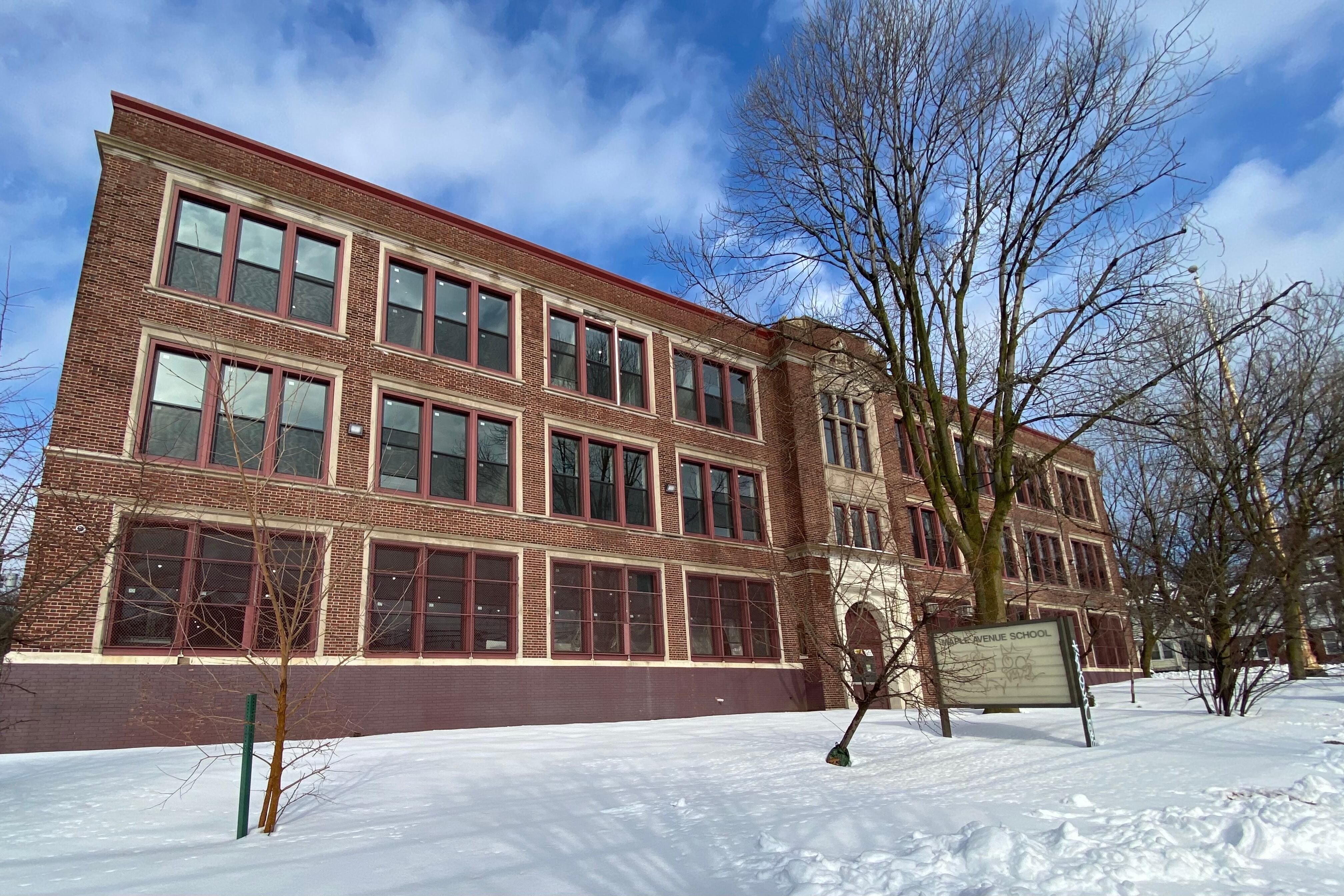Sign up for Chalkbeat Newark’s free newsletter to keep up with the city’s public school system.
The Newark school board’s battle to reclaim a former building that reopened as a KIPP charter school was dismissed by a state judge earlier this month, a judgment the district could appeal.
The fight to reclaim the former Maple Avenue school building first started in 2020 with a lawsuit against the city’s housing authority and KIPP schools, two years after Roger León became the first superintendent to lead the Newark school district under local control. According to the suit, the district wanted a state judge to void the sale of the property and give the building back to the district.
That historic school, which was built in 1925, was closed in 2015 when the district was under state control. In 2016, the district, under state-appointed Superintendent Cami Anderson, transferred that property and 11 others to the city’s housing authority under an agreement that the agency would sell the buildings through a public bidding process and return most of the profits to the district. Back then, the city planned to transform the Maple Avenue building into apartments, but it is now home to more than 560 KIPP SEEK Academy elementary students.
The dismissal signals a possible end to the four-year battle started after León set a plan to expand the district and reclaim former public school buildings. Superior Court Judge Lisa Adubato announced her ruling on May 9, and Newark school leaders have until July 9 to file an appeal if they decide to continue with the lawsuit.
The Maple Avenue lawsuit was just one of León’s efforts to increase enrollment and stop the expansion of charter schools in Newark, which are privately run but publicly funded schools.
Adubato called the district’s efforts to reclaim Maple Avenue “shameful” in an April court hearing. She added that the lawsuit could have been avoided if the district had specified language in the property’s title that sales to charter schools were prohibited.
“The fact that this has been going on for four years between two public entities in a situation where it’s – frankly, it’s shameful, the amount of money” that has been spent, Adubato said.
Nancy Deering, the district’s acting communications director, said the district does not comment on pending litigation.
KIPP New Jersey called the court’s decision “a win for hundreds of Newark’s students and families.”
“We were confident from the beginning that the law would be on our side as we viewed the suit as baseless – there were no restrictions on the title as we were a bona fide purchaser and had faith in the court that a ruling would ultimately be in our favor,” said Gabriella DiFilippo, chief operating officer at KIPP NJ.
When the district was under state control, from 1995 until 2020, state-appointed superintendents closed many public schools while the charter sector boomed across the city. Charter schools now educate more than a third of Newark’s public school students. Since at least 2022, Newark schools has worked with a Memphis-based marketing firm to recruit students into district schools in an effort to boost enrollment. The firm called Caissa Public Strategy has a track record of attracting students from charter schools into districts.
León has also called on the state to close charter schools such as North Star Academy and People’s Preparatory Charter School, arguing that those schools created “a segregative effect” and prevented the district from expanding. Also in 2020, the district filed a lawsuit against People’s Prep, and the court forced the school to leave its space at Bard Early College High School earlier this year.
In 2017, the city sold the Maple Avenue property for $1.2 million to Newark-based developer Hanini Group. In 2020, the property was sold for $10 million to a nonprofit connected to KIPP New Jersey.
The district is also reviewing leases with other charter schools it houses for the “possible return of those school properties to the Board of Education,” according to a January committee report. Last year, the district repurchased State Street school, one of the 12 schools transferred to the city in 2016.
State Street, Newark’s oldest school building, along with the Maple Avenue building, were sold to the Hanini Group. Details about the agreement between the public schools and the developer have not been disclosed, according to documents in a 2023 lawsuit filed against the district by Skyway Publishing LLC, a New Jersey-based company that publishes TAPInto Newark. The district plans to renovate the school as a district museum, León has previously said.
Last spring, the district acquired the former four-story University Heights Charter School building from the state. The charter school struggled to improve student test scores, increase enrollment, and retain its leadership team before the state shut it down. The building was then purchased by the state’s School Development Authority in 2022, which pays for school construction projects in 31 high-poverty districts, including Newark.
Jessie Gómez is a reporter for Chalkbeat Newark, covering public education in the city. Contact Jessie at jgomez@chalkbeat.org.



